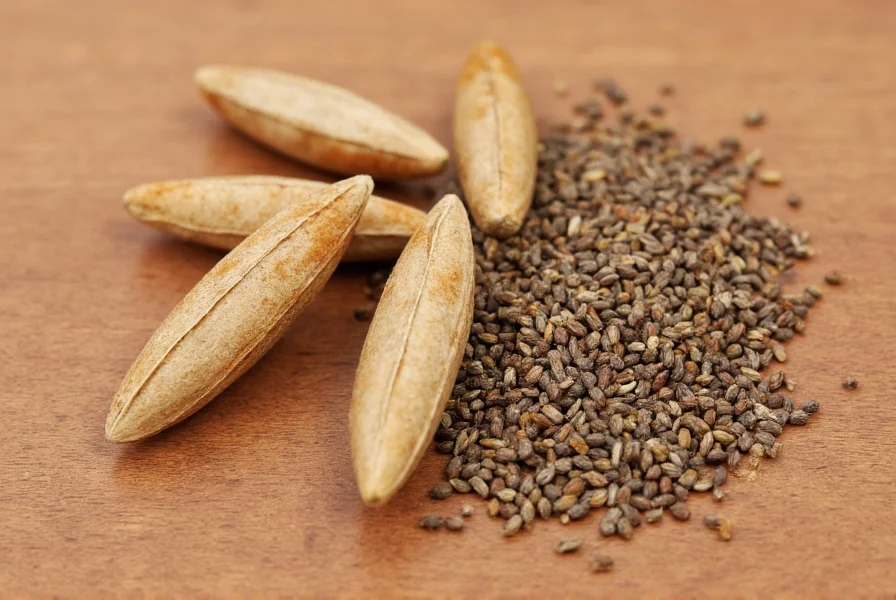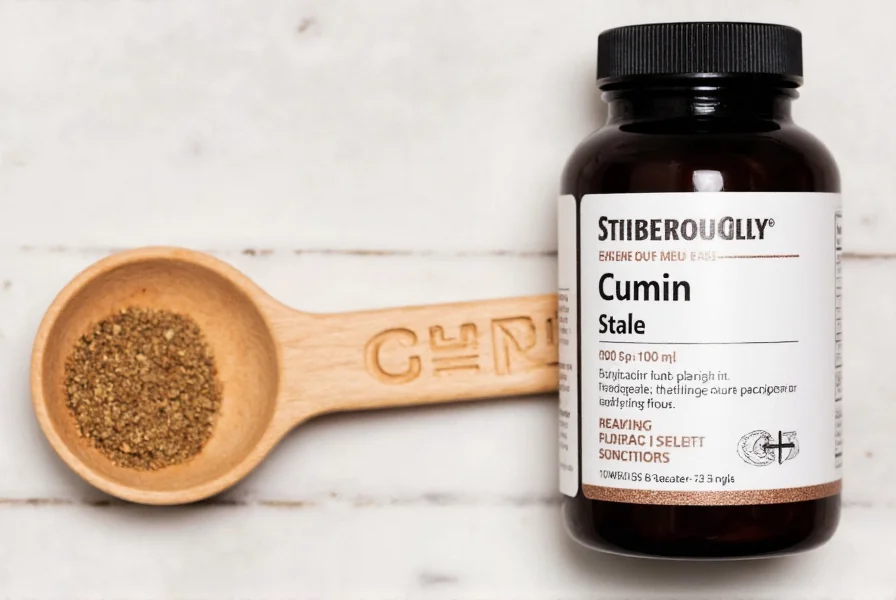Cumin has been used as both a culinary spice and traditional medicine for thousands of years. As interest in natural health solutions grows, cumin pills have gained popularity as a convenient way to access potential therapeutic benefits without incorporating large amounts of the spice into daily meals. Unlike culinary cumin which you sprinkle on dishes, cumin supplements concentrate active compounds like cuminaldehyde and thymoquinone that may offer specific health advantages.
What Exactly Are Cumin Pills?
Cumin pills typically contain ground cumin seed or standardized cumin extract encapsulated for oral consumption. The most common forms include:
- Whole seed powder capsules - containing simply ground cumin seeds
- Standardized extracts - concentrated to contain specific percentages of active compounds
- Essential oil capsules - less common due to potency concerns
The concentration of bioactive compounds varies significantly between products. Quality cumin supplements often standardize to 2-3% essential oil content, which contains the primary active components responsible for potential health effects.

Scientifically Supported Health Benefits of Cumin Pills
While traditional medicine has long praised cumin's healing properties, modern research provides more nuanced insights about what cumin pills actually deliver.
Digestive Health Improvements
Multiple studies indicate cumin supplements may enhance digestive function. A 2016 clinical trial published in Complementary Therapies in Medicine found that participants taking 300mg of cumin extract twice daily reported significantly reduced symptoms of indigestion compared to placebo. Researchers believe cumin stimulates digestive enzyme production and may help reduce intestinal spasms.
Blood Sugar Management
Several studies suggest cumin supplements might support healthy blood glucose levels. Research in the Journal of Ethnopharmacology demonstrated that type 2 diabetes patients taking 75mg of cumin extract daily for eight weeks showed improved fasting blood sugar and HbA1c levels compared to the control group. However, larger and longer-term studies are needed to confirm these effects.
Cholesterol and Heart Health
A systematic review in Phytotherapy Research analyzed multiple studies on cumin's cardiovascular effects. Results indicated that cumin supplementation (ranging from 300-500mg daily) was associated with modest reductions in LDL cholesterol and triglycerides, though effects on HDL cholesterol were inconsistent across studies.
| Health Benefit | Research Evidence Level | Typical Dosage in Studies |
|---|---|---|
| Digestive support | Moderate (several human trials) | 300-600mg daily |
| Blood sugar management | Preliminary (small human studies) | 75-150mg daily |
| Cholesterol improvement | Limited (mixed results) | 300-500mg daily |
| Anti-inflammatory effects | Strong (lab and animal studies) | Not established for humans |
Safety Profile and Potential Side Effects
Cumin pills are generally well-tolerated when taken at recommended doses, but some users may experience:
- Mild digestive upset (nausea, heartburn)
- Allergic reactions (rare, but possible in those sensitive to Apiaceae family plants)
- Increased bleeding risk when combined with anticoagulant medications
- Potential blood sugar lowering effects that may interact with diabetes medications
People with the following conditions should exercise caution or avoid cumin supplements:
- Those scheduled for surgery within two weeks (due to potential bleeding risk)
- Individuals with gallstones (cumin may increase bile production)
- Pregnant women beyond first trimester (high doses may stimulate uterine contractions)
- People with known allergies to cumin or related plants
Recommended Dosage Guidelines
Based on current research, effective dosages of cumin pills typically range from 300-600mg of standardized extract daily, divided into two doses. Most clinical studies use:
- Digestive support: 300mg twice daily with meals
- Blood sugar management: 75-150mg daily
- General wellness: 300mg once daily
It's important to note that cumin pills work best when taken with food, as dietary fats enhance absorption of the fat-soluble compounds in cumin. Effects may take 4-8 weeks to become noticeable, depending on the intended benefit.

Cumin Pills vs. Culinary Cumin: Understanding the Difference
While both come from the same plant, there are important distinctions between consuming cumin as a spice versus taking it as a supplement:
- Concentration - Supplements contain concentrated active compounds not achievable through normal dietary intake
- Consistency - Pills provide standardized doses unlike variable culinary use
- Therapeutic potential - Supplements may deliver doses high enough for specific health effects
- Safety profile - High supplement doses carry different risk profiles than culinary use
For general health maintenance, incorporating cumin into your diet remains an excellent approach. However, for targeted therapeutic goals like managing blood sugar or improving digestion, standardized supplements may provide more consistent results based on current research.
Choosing Quality Cumin Supplements
Not all cumin pills deliver what they promise. When selecting a product, look for:
- Third-party testing verification (USP, NSF, ConsumerLab)
- Standardized extract information (typically 2-3% essential oil)
- Clear dosage information on active compounds
- Reputable manufacturer with transparent sourcing
- No unnecessary fillers or additives
Be wary of products making exaggerated health claims or promising miraculous results. Legitimate supplement manufacturers understand the limitations of current research and present information responsibly.
Practical Considerations for Using Cumin Pills
Before adding cumin supplements to your routine, consider these practical tips:
- Consult your healthcare provider, especially if you take medications for diabetes or blood thinning
- Start with the lowest effective dose to assess tolerance
- Take with food to enhance absorption and reduce stomach upset
- Track your symptoms to evaluate effectiveness objectively
- Give it at least 4-6 weeks before deciding if it works for you
- Store in a cool, dark place to maintain potency
Remember that cumin pills should complement, not replace, other healthy lifestyle practices. They work best as part of a balanced diet, regular exercise, and proper medical care when needed.
Frequently Asked Questions About Cumin Pills
How long does it take for cumin pills to work for digestion?
Most people notice improvements in digestive symptoms within 2-4 weeks of consistent use at recommended doses (300mg twice daily). Some report benefits after just a few days, while others may need up to 6 weeks to experience noticeable effects. Taking cumin pills with meals enhances their digestive benefits.
Can cumin pills lower blood sugar too much?
Cumin supplements may enhance the effects of diabetes medications, potentially causing blood sugar to drop too low. If you take medication for diabetes, consult your doctor before using cumin pills and monitor your blood sugar closely. Most studies used relatively low doses (75-150mg daily) specifically to avoid this risk.
Are cumin pills safe for long-term use?
Current research suggests cumin pills are safe for long-term use at recommended doses (up to 600mg daily). Studies have monitored participants for up to 3 months without significant safety concerns. However, comprehensive long-term safety data beyond 6 months is limited, so periodic evaluation with your healthcare provider is recommended.
What's the difference between black cumin and regular cumin pills?
Black cumin (Nigella sativa) and regular cumin (Cuminum cyminum) are completely different plants with distinct properties. Black cumin seeds are smaller, black, and contain thymoquinone as the primary active compound, while regular cumin contains cuminaldehyde. They have different research profiles and should not be confused, despite similar names.
Can I take cumin pills while pregnant?
Pregnant women should avoid cumin supplements beyond normal culinary use, especially after the first trimester. While small amounts of cumin in food are generally safe, high-dose supplements may stimulate uterine contractions. Always consult your obstetrician before taking any supplements during pregnancy.










 浙公网安备
33010002000092号
浙公网安备
33010002000092号 浙B2-20120091-4
浙B2-20120091-4